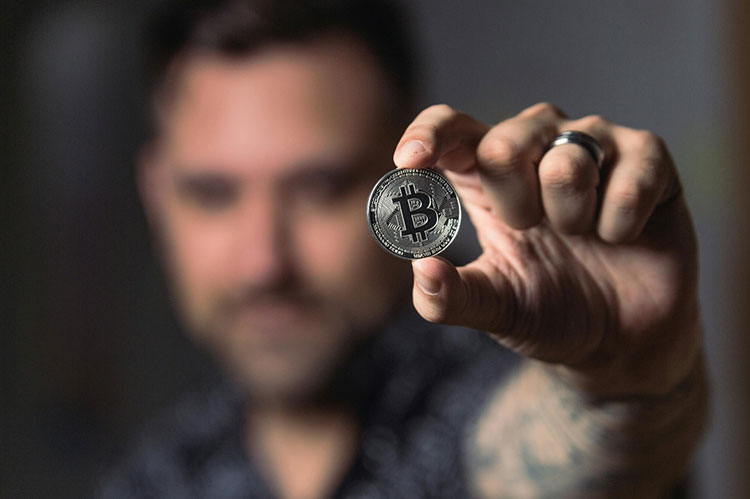Dividing Digital Assets in a Divorce (e.g., NFTs, Cryptocurrency)

Magnuson Lowell Blog
Each week we post a blog about relevant legal issues. Glance through our various topics to learn more about a particular legal situation.
These articles are for limited informational purposes only and are not, nor are they intended to be, legal advice. You should not rely on this information for your case and should consult with an attorney for advice regarding your individual situation.
Most Recent Posts ...
Posted on: 2/10/2025
Posted on: 2/3/2025
Posted on: 1/27/2025
Posted on: 1/20/2025
Search All Blog Posts
Blog Post Archive Categories
- Reconciling After a Divorce Filing
- Dividing Retirement in Divorce - Do I Need a QDRO?
- Options for Dealing with Real Estate in Your Washington State Divorce
- Positive Thoughts After Losing a Family Law Motion
- Supervised Visitation for Washington Parenting Plans: What You Need to Know
- Filing for Immediate Restraining Orders in King County
- (Redmond/Criminal Defense) Time Matters for a DUI
- (Redmond/Criminal Defense) Field Sobriety Tests - What Not to Do
- (Redmond/Criminal Defense) - The (Redmond/Criminal Defense) - The Ability to Remain Silent
- Battling Father Time: Crafting Your Legacy with Precision
- Tips for Talking to Your Family About Your Estate Plan
- How to Choose Your Personal Representative for your Will
- What is a Trial Continuance in Washington State?
- Renewing a Domestic Violence Protection Order in Washington State
- Little Known Washington Driving Laws
- Dividing Digital Assets in a Divorce (e.g., NFTs, Cryptocurrency)
- Preparing for Divorce: Passwords, Accounts, and Privacy
- How to Navigate a Divorce While Living in the Same House
- Why Expediency is Important After Your Car Accident
- Understanding Independent Medical Examinations (IMEs) in Washington State
- It only takes 3 seconds...
- Gotta love our court system!
- (Redmond/Crazy Lawsuit) The Walking Dead: or Not!
- (Redmond/Crazy Lawsuit) Here Comes Football - and Litigation
- Honoring Our Heroes: A Thank You to All Who Have Served!
- Happy Halloween from Magnuson Lowell
- 10 Tips You Need To Know Before Getting On A Motorcycle
- Top 10 Tips You Need To Know Before Getting On A Motorcycle
- Top 10 Tips Riders Need To Know Before Getting On A Motorcycle
- In a Car Collision...Now What?
- Cryptocurrency (Bitcoin, Ethereum, Solana, etc.)
- Non-Fungible Tokens (NFTs) (digital artwork, collectibles, music rights)
- Online businesses and domain names
- Virtual real estate or gaming assets (Metaverse, video game skins, etc.)
- Digital royalties (YouTube, TikTok, e-books, music streaming)
- Financial statements showing transactions (Coinbase, Binance, Kraken, etc.)
- Tax filings listing cryptocurrency gains/losses
- Blockchain transaction history
- NFT purchase records (OpenSea, Rarible, etc.)
- Direct Transfer: If both parties agree, cryptocurrency can be split by transferring half of the holdings to a separate digital wallet.
- Offset with Other Assets: One spouse may keep the digital assets while the other receives an equivalent amount in traditional assets (e.g., real estate, retirement accounts).
- Liquidation and Equal Distribution: The assets are sold, and the proceeds are divided between both spouses.
- Unexplained withdrawals or large transfers from joint bank accounts
- Sudden decreases in reported income or financial resources
- Mentions of crypto investments that are absent from financial disclosures
Dividing Digital Assets in a Divorce (e.g., NFTs, Cryptocurrency)

Dividing assets in a divorce has always been complex, but in today’s digital age, couples are increasingly dealing with cryptocurrency, NFTs, and other digital assets. These assets can be valuable, volatile, and difficult to trace, making them a crucial yet challenging part of divorce settlements.
At Magnuson Lowell, P.S., we help Washington clients navigate the division of digital property, ensuring they receive their fair share. If you or your spouse own Bitcoin, Ethereum, NFTs, or other digital investments, here are some things to know.
1. Understanding Digital Assets in Divorce
Digital assets can include a variety of holdings, such as:
Under Washington’s community property laws, assets acquired during the marriage are often subject to an equitable division. However, proving the existence and value of digital assets can be challenging.
2. Identifying and Valuing Digital Assets
One of the biggest hurdles in dividing digital property is tracking ownership and assessing value. Unlike traditional bank accounts, crypto and NFTs are often stored in digital wallets that may not be easily visible in financial records.
To uncover hidden digital assets, you may need:
Since digital assets fluctuate in value, it’s important to obtain a current appraisal before finalizing any division.
3. Dividing Cryptocurrency and NFTs in Divorce
There are multiple ways to fairly divide digital assets in divorce:
The best approach depends on tax implications, volatility, and the willingness of both parties to retain crypto investments.
4. Protecting Yourself from Hidden Digital Assets
Because crypto can be easily transferred or hidden in anonymous wallets, spouses may attempt to conceal digital assets during divorce. Signs your spouse may be hiding cryptocurrency include:
A divorce attorney can work with forensic accountants to attempt to trace blockchain transactions and uncover missing assets.
5. Tax Considerations for Digital Assets in Divorce
Cryptocurrency may be subject to capital gains taxes, meaning the timing and method of division can significantly impact tax liability. Always work with your accountant to determine potential tax liabilities before finalizing a divorce to avoid unexpected taxable situations.
6. Work with a Divorce Attorney Experienced in Digital Assets
Digital assets bring unique challenges to divorce proceedings, but you don’t have to navigate them alone. At Magnuson Lowell, P.S., we help clients understand their rights, uncover hidden digital property, and work towards fair asset divisions. We offer free telephone case evaluations, so if you’re dealing with cryptocurrency, NFTs, or other complex digital assets in your divorce, contact us today 425-800-0576




